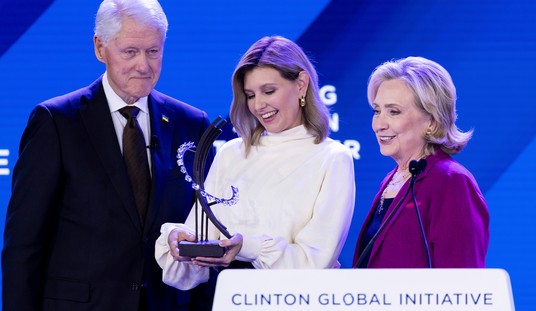Byron York offers the good news this morning that Republicans on Capitol Hill remain committed to ending subsidies for public broadcasting, including NPR and PBS. The defeat of the House budget bill in the Senate last night sets back that effort, but the high-profile meltdown at NPR and a potential embarrassment looming at PBS will keep momentum for the push:
After the release of the James O’Keefe sting video Tuesday, National Public Radio officials rushed to fire NPR head Vivian Schiller in hopes of slowing Republican efforts to cut federal funding for public broadcasting. But GOP leaders in Congress are vowing to push forward with their drive to cut off federal funding for National Public Radio and the Corporation for Public Broadcasting — and they say the effort will not be affected by Schiller’s departure.
“This latest development in what appears to be an internal meltdown at National Public Radio only strengthens my resolve to eliminate all federal funding for NPR and its parent organization, the Corporation for Public Broadcasting,” said Rep. Doug Lamborn, the Colorado Republican who is leading the effort to defund both NPR and CPB.
“Our concern is not about any one person at NPR,” said House Majority Leader Eric Cantor. “Rather, it’s about millions of taxpayers. NPR has admitted that they don’t need taxpayer subsidies to thrive, and at a time when the government is borrowing 40 cents of every dollar that it spends, we certainly agree with them.”
Cantor is right, and it is important for Republicans to separate the scandals at NPR with the actual arguments that support defunding. Primarily, we’re out of money. We are borrowing 40 cents of every dollar the government spends. Under those circumstances, Congress has a duty to stop spending money on anything but its essential, constitutional obligations, no matter how virtuous or non-virtuous the recipient of such funds might be. It certainly helps to have NPR execs acting like horse’s patoots to get the public behind such cuts, but in a real sense that should be superfluous. Even if NPR was run by Mother Teresa and Mohandas Gandhi, we still wouldn’t have the money to fund it.
Furthermore, it’s unnecessary, and “public” broadcasting is as anachronistic as a covered wagon. There may have been a good argument for it when television offered few choices to viewers outside of urban centers, but those days disappeared decades ago. Viewers have hundreds of choices for entertainment, information, and education from television, not to mention the Internet, Blu-Ray, and so on. NPR and PBS should compete in the same market for those viewers without getting a hand up from taxpayers, even apart from the fact that NPR doesn’t appear to have a high opinion of many of those taxpayers anyway.
But if the logical arguments leave you cold, well, let’s get back to the provocative examples of where the money goes. The Boston Herald did some probing of PBS flagship station WGBH in Boston, which produces a third of PBS programming, and discovered that some people do awfully well on the public dime (via Jules Crittenden):
The review of WGBH’s 2009 Internal Revenue Service filings — the most recent available — found:
• Four vice presidents and producers pulled in more than $300,000 — and another 10 took home more than $200,000 — in pay and benefits;
• 145 of WGBH’s then-950 employees — about 15 percent — earned more than $100,000.
• Ex-WGBH president Henry Becton Jr. — now the station’s vice-chairman — made $160,873 in total compensation for working just 24 hours a week.
• Top brass pocketed more than $200,000 in bonuses.
WGBH’s $425,000-a-year CEO, Jonathan Abbott, defended the salaries, saying he hasn’t had a raise since taking the helm in 2007 and that WGBH has to compete for talent with the country’s leading media companies.
“We also benchmark all of those salaries to comparable salaries at media and nonprofit organizations in this area and nationally,” Abbott said. “If you look at my compensation relative to . . . my peers in Boston or in this country, I am . . . paid a fair wage.”
Abbott gets paid more than the President of the United States, and he’s complaining about not getting a raise? I’d have no problem with Abbott’s salary, or with Becton’s part-time job at $800 an hour, if it came from private-sector work. Private-sector firms have a natural tension between costs and revenue that eventually force companies to deal more efficiently with salaries and competitive pressures. Private-sector firms have to convince consumers to buy their products or services voluntarily, which is what keeps pricing and overhead rational. When the government subsidizes organizations like WGBH, it forces every taxpayer to be a contributor without any choice in the matter, and it allows for irrational outcomes on pricing and decisions on investment and overhead.
It’s time to bring this gravy train to an end. If Abbott is really worth $425,000 in that position, he’ll have nothing to fear. Let’s give him the opportunity to find out.
Apropos of nothing: Man, I still really miss Jules Crittenden’s eponymous blog.









Join the conversation as a VIP Member